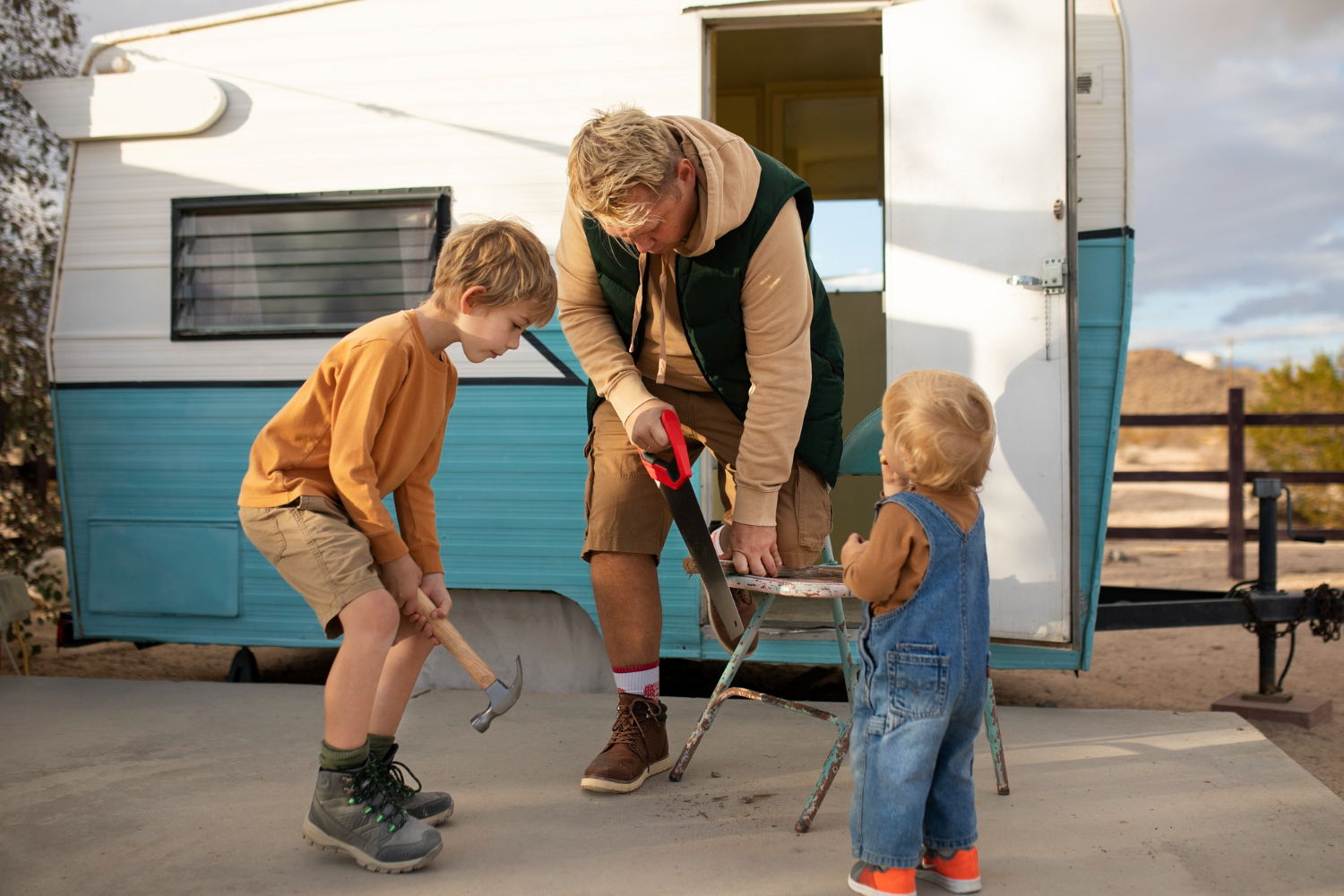Proper storage is one of the most important factors in maintaining the longevity and performance of your trailer. Whether you use your trailer seasonally or only occasionally, how you store it during downtime can make a big difference in avoiding costly repairs down the road.
Improper storage can lead to rust, tire damage, electrical problems, and structural issues that diminish the value and usability of your trailer. To help protect your investment, here are essential tips on how to store your trailer safely and prevent expensive maintenance later.
1. Clean Your Trailer Thoroughly
Before putting your trailer into storage, give it a thorough cleaning:
-
Wash the exterior: Remove dirt, mud, road salt, and grime to prevent corrosion.
-
Clean the undercarriage: Pay attention to the frame and axles where buildup can cause rust.
-
Remove debris: Clear away leaves, twigs, or other debris from around and under the trailer.
-
Clean the interior: If applicable, clean floors and compartments to avoid mold, mildew, and pests.
2. Inspect and Maintain Tires
Tires are one of the most vulnerable parts during storage:
-
Inflate tires to the recommended pressure: Proper inflation prevents flat spots and dry rot.
-
Use tire covers: Protect tires from UV rays which cause cracking and deterioration.
-
Consider tire blocks or jacks: These relieve pressure from tires by taking the weight off them.
-
Check for wear or damage: Replace any tires that are cracked, worn, or more than six years old.
3. Protect the Trailer Frame and Components
Exposure to moisture and weather can cause rust and deterioration:
-
Apply rust-preventative spray: Use products designed for trailer frames and metal parts.
-
Lubricate moving parts: Grease the wheel bearings, hitch coupler, and suspension components.
-
Cover exposed wiring: Seal any exposed electrical connections to avoid corrosion.
4. Disconnect and Store Batteries
If your trailer has batteries:
-
Disconnect them: Prevent discharge and electrical issues.
-
Store in a cool, dry place: Avoid freezing temperatures that can damage batteries.
-
Maintain charge: Use a battery maintainer or trickle charger during storage.
5. Use a Quality Trailer Cover
A proper cover is essential, especially if storing outdoors:
-
Choose a breathable cover: Prevents moisture buildup and mold.
-
Secure the cover tightly: Protects against wind damage and pests.
-
Check the cover periodically: Replace if torn or damaged.
6. Store in a Suitable Location
Where you store your trailer matters:
-
Indoor storage: Provides the best protection from weather, pests, and vandalism.
-
Covered storage: If indoor is not available, use a carport or shelter.
-
Choose a flat, dry surface: Avoid parking on grass or dirt to reduce moisture exposure.
7. Take Safety Precautions
-
Use wheel chocks: Prevent the trailer from rolling.
-
Lock the hitch: Deter theft.
-
Seal all openings: Cover vents, windows, and doors to keep pests out.
8. Periodically Check on Your Trailer
Even in storage, it’s important to:
-
Inspect for new damage or leaks.
-
Check tire pressure monthly.
-
Ensure no pests have invaded the interior.
-
Look for signs of rust or corrosion.
Storing your trailer correctly can save you from unexpected and costly repairs caused by neglect, weather damage, or pest infestations. By following these preventive steps—cleaning thoroughly, maintaining tires, protecting metal parts, securing batteries, using a quality cover, and choosing a proper storage location—you’ll keep your trailer in top condition and ready for your next adventure.
Taking the time to prepare your trailer for storage is an investment in its longevity and your peace of mind.

